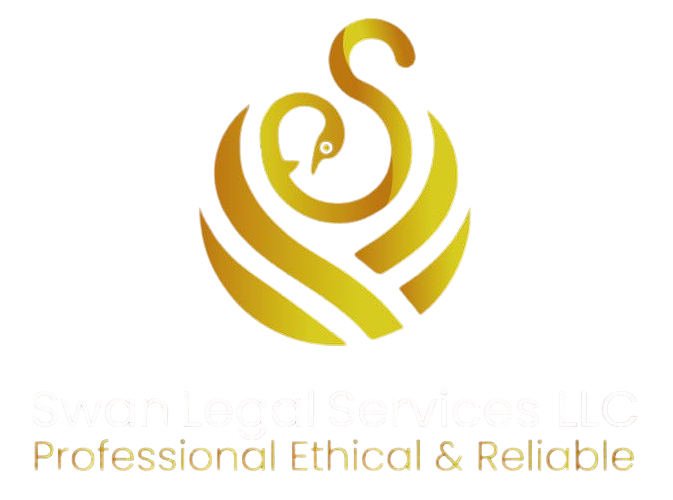Unveiling the Legal Bounds: What Legal Documents Can a Professional Server Lawfully Deliver in Texas?
Types of documents that can be served by a Professional Server

Navigating the legal system in Texas can feel overwhelming. Legal processes are complex, but understanding them can make a significant difference for individuals and businesses alike. One of the essential players in this system is the process server, responsible for delivering various legal documents. Knowing what types of documents a professional server can deliver is crucial for ensuring justice is served properly. This article explores those types of documents and highlights key aspects of Texas law.
Understanding Process Serving in Texas
In Texas, process serving is governed by the Texas Rules of Civil Procedure. These rules dictate how legal documents must be delivered to guarantee all parties receive fair notice. Properly serving these documents is crucial for protecting the right to due process.
Many people think process servers only deliver court papers, but their role is broader. They are also involved in serving various legal notices, from subpoenas to eviction notices. Knowing the different documents that require service can help parties navigate legal proceedings effectively.
Types of Documents That Can Be Served by a Professional Server
1. Summons and Complaints
Summons and complaints are the most frequently served documents. A summons informs a person that they are being sued, while a complaint contains the details of the allegations.
In Texas, proper service of these documents is vital. If a summons is not served correctly, it can lead to a default judgment against the defendant. For instance, in a study, over 30% of default judgments were attributed to improper service of process. The law requires these documents be handed directly to the individual being sued to ensure they have time to respond.
2. Subpoenas
Subpoenas are significant documents that require individuals to appear in court or provide related documents. In Texas, subpoenas can be issued for civil and criminal cases, emphasizing the need for proper delivery.
Failure to comply with a subpoena can result in penalties, including contempt of court. Professional servers must ensure these documents are received in a way that clearly communicates the recipient's legal obligations.
3. Writs
Writs are specialized orders from a court that compel action or restraint. Common writs in Texas include writs of attachment, which can seize property, and writs of execution, which enforce judgments. According to Texas Rules of Civil Procedure (103),
For example, a writ of execution might order the sale of a debtor's property to satisfy a judgment. Process servers must understand and adhere to the specific requirements of each writ to facilitate timely compliance.
Process Servers are not authorized to enforce writs that involve seizing property, making arrests, or carrying out physical removals. These actions must be performed by a Constable or Sheriff's Office.
4. Eviction Notices
Eviction notices are crucial in landlord-tenant disputes. When landlords need to remove a tenant due to unpaid rent or lease violations, they must follow specific delivery protocols to make their eviction legally valid.
In Texas, landlords cannot simply inform tenants verbally; legal guidelines dictate that these notices must typically be delivered in writing and may involve a notice period of three to 30 days, depending on the situation. Missteps in this process can significantly delay eviction, so working with a knowledgeable process server is essential.
5. Family Law Documents
Family law documents, such as divorce petitions and child custody filings, require careful handling. In Texas, prompt service is often necessary to move forward with legal actions swiftly.
For example, a divorce petition must be served quickly to avoid unnecessary delays in court proceedings. Given the sensitive nature of this information, professional servers should deliver such documents with discretion and care, ensuring confidentiality for all parties involved.
6. Civil Citations
Civil citations notify parties of legal actions against them and outline critical court dates and requirements. In small claims court, for example, proper service is necessary to enforce monetary judgments.
Research indicates that improperly served citations can result in delays of up to 60 days in legal proceedings. Therefore, timely and effective delivery by process servers is crucial to minimize disruptions in the legal process.
7. Court Orders
Court orders encompass various legal mandates, including those related to child support and temporary restraining orders. Serving these documents accurately is vital, as many have time-sensitive stipulations.
For instance, a temporary restraining order (TRO) may require immediate adherence. If not served correctly, the recipient may miss critical deadlines, potentially affecting the case's outcome.
8. Restraining Orders
Restraining orders provide necessary protection in cases of domestic violence or harassment. Professional process servers are responsible for delivering these crucial documents to the concerned parties.
Due to the sensitive nature of restraining orders, servers must maintain confidentiality and exercise care throughout the delivery process. Quick and effective service is often vital to ensuring the victims receive immediate protection.
The Importance of Professional Process Servers
Hiring a professional process server is essential for several reasons. First, they ensure compliance with Texas law, preserving the integrity of the legal process. Process servers possess the knowledge and experience to navigate complicated situations, minimizing the risk of legal setbacks.
Additionally, using a professional can help alleviate the emotional tensions that may arise when serving friends or family members. They provide a neutral third party, which is often crucial when dealing with sensitive issues.
Navigating the Legal Landscape with Confidence
Understanding the various types of processes a professional server can legally deliver in Texas can significantly enhance your approach to legal matters. Whether you are an attorney, landlord, or someone needing legal assistance, recognizing the importance of effective process serving can streamline your legal experiences.
Legal processes can be complex, but knowing what documents need to be served and the proper methods for doing so can simplify your path to resolution. Always make it a priority to engage a qualified process server to navigate these challenges, ensuring adherence to Texas's strict legal regulations.
Swan Legal Services LLC are:
*Certified in the area of Service of Process
*Licensed and Insured in Private Security and Investigations that include Asset Locate and Judgement Recovery, and
*Bonded in the areas of Credit and Debt Collection and Credit Repair in the State of Texas.
Contact us thru our website
Give us a call 844-325-0088, or
Send us an email: swanlegalservices@yahoo.com
Lets talk about how we can help solve your firm or personal legal concerns!
Source Reference(s): Supreme Court of Texas, Misc. Docket No. 24-9102; “Final Approval of Amendments to Texas Rules of Civil Procedure 103, 107, and 501”; https://www.txcourts.gov/media/1459706/249102.pdf ; obtained 2-12-2025 Casetext; ’ Tex. R. Civ. P. 103; Amended November 22, 2024, effective 12/1/2024.Notes and Comments ***Comment to 1988 change: The amendment makes clear that the courts are permitted to authorize persons other than Sheriffs or Constables to serve Citation. Further, Sheriffs or Constables are not restricted to service in their county. The last sentence is added to avoid the necessity of motions and fees. ***Comment - 2005: The rule is amended to include among the persons authorized to effect service those who meet certification requirements promulgated by the Supreme Court and to prohibit private individuals from serving certain types of process unless, in rare circumstances, a court authorizes an individual to do so.

















